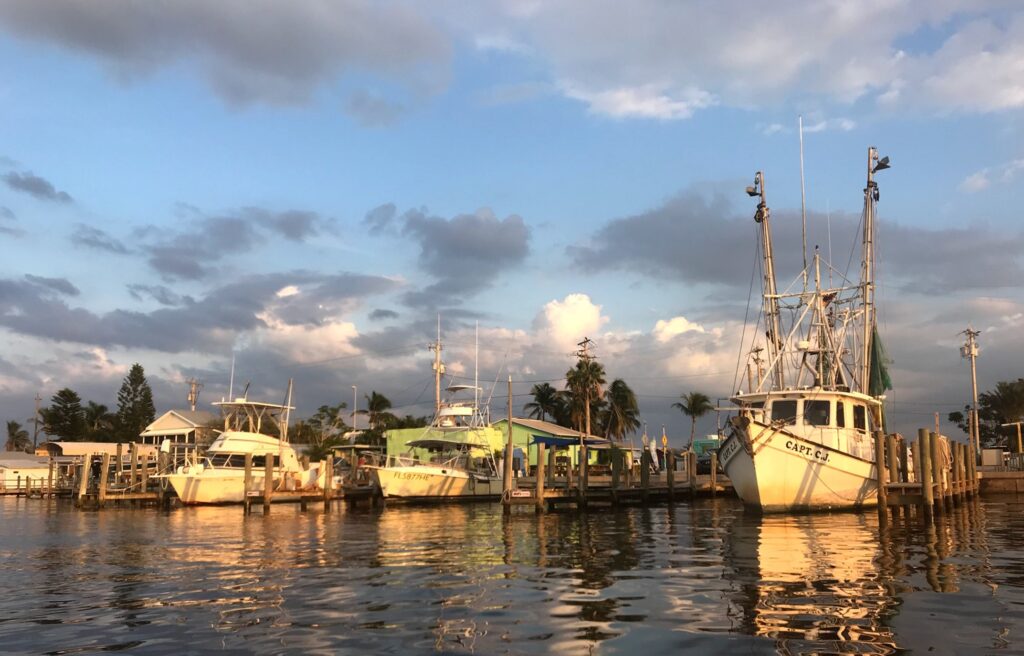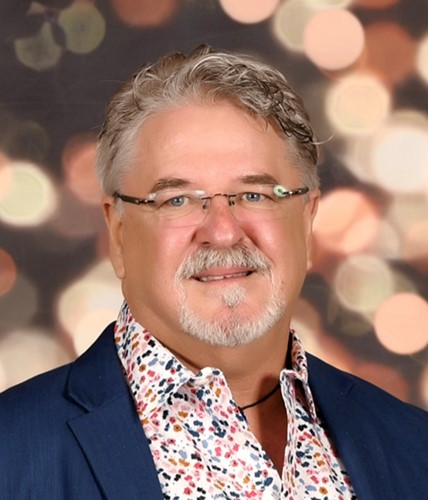By Karl R. Deigert, Florida Right to Clean and Healthy Waters
I had a lifelong dream: a life spent on, in and harvesting our waters. My dream came true: First as a kid on the Chesapeake Bay, then 27 years living in the Florida Keys and then, in 2014, owning a small waterfront motel in Matlacha. It was a place to live the rest of my life fulfilling my passions in paradise, while giving boat tours to guests from around the world.
Then came 2016. It was the first time I learned of harmful cyanobacteria algae. A toxic bloom blanketed the Caloosahatchee River and Cape Coral canals. I stood on my dock and thought, “If that bloom comes here, my business will be destroyed; I will have to leave.”
We saw a reprieve in 2017, but not for long. The summer of 2018 brought the worst red tide in Southwest Florida’s history. Dead sea life blanketed beaches for months. Businesses shut their doors. Millions of dollars were lost. Laid-off employees were forced into lines at food banks.

My two businesses’ revenue went to zero. Fortunately, I survived the downturn; many businesses did not. Many folks were forced away, their dreams of paradise lost.
Watching the environmental degradation accelerate, I began a deep dive on the 1,000 cuts killing Florida: agricultural pollution flowing into Lake Okeechobee, phosphate mining, failing infrastructure, herbicides, pesticides, fertilizers – and, ultimately, failed legislative and regulatory stewardship cored in a framework of failure. These policies do nothing until harmful impacts reach a point of no return, favoring remediation over prevention.
I hoped for a respite from now-perpetual algae blooms. No relief came. Lyngbya cyanobacteria blooms grew rapidly, covering seagrass beds. My backyard was packed with floating algae emitting hydrogen sulfide gases that sent neighbors to hospitals. Motel guests complained and left.
Decaying algae sinks to burn oxygen from the waters overnight and we awoke to major fish kills. The Florida Fish and Wildlife Conservation Commission would bring dead manatees to the Matlacha boat ramp at the end of my canal for pickup. Explaining all this to tourists on my eco-tours became impossible.
Being vocal, I was asked to run for office. Shortly thereafter I discovered the most expedient way to bring effective change. “We the people” can create the protective laws we want through the petition process to amend state constitutions – no politicians required!
It has taken several years to help build the 2026 Florida’s right to clean water state constitutional amendment campaign. Collecting 900,000 signatures to put the amendment on the ballot and passing the measure will end the biggest problem impacting Florida waters. We will have the missing tool to hold state agencies accountable for actions that allow harm to our waters. We will have legal standing to bring civil actions that end major sources of pollution while shifting remediation from taxpayers’ backs onto the polluters.

Statewide clean water advocacy organizations will benefit from this new law in achieving their mission statements. Ask your favorite groups if they are supporting the amendment. If not, ask, “Why not? and “How can they not?” The power this law will bring to conservation should be included in every discussion for Florida waters and our “blue economy.”
I had a dream, and it’s now a life goal forever lost. It was June 2021 when I determined, “It’s time to leave.” Fortunate enough to have lived my dream, I now have a wish: I wish for all Floridians to join our 100% grassroots effort with volunteers and organizations supporting the campaign statewide. You can be the change for Florida waters.
It takes five minutes to print, sign and mail your petition, and a few more to share it with friends. For the price of a stamp, we can recapture our dreams of clean waters. Please visit floridarighttocleanwater.org today to make this new law a reality.
Capt. Karl R. Deigert is chairman of the Florida Right to Clean and Healthy Waters political action committee for 2026. A pharmacist by profession, charter captain by avocation and a clean water advocate by passion, he has been a Florida resident since 1986 and currently lives in Ocala.
Sign up for The Invading Sea newsletter by visiting here. If you are interested in submitting an opinion piece to The Invading Sea, email Editor Nathan Crabbe at ncrabbe@fau.edu. To learn more about harmful algal blooms, watch the video below.




Please donate too for our mail campaign at FloridaRighttoCleanWater.org
Thank you!
Always interesting to view what’s wrong with our water and try to fix it! Thank you, karl, for such an informative article for the public to read and understand the problem and help us with the solution. Floridarighttocleanwater.org is the place to start!